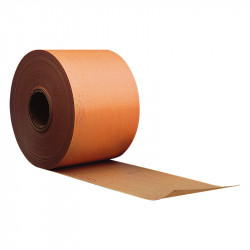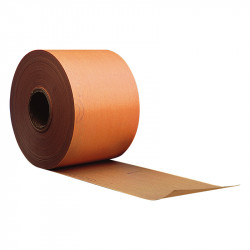-
BackX
-
Components
-
-
Category
-
Semiconductors
- Diodes
- Thyristors
-
Electro-insulated Modules
- Electro-insulated Modules | VISHAY (IR)
- Electro-insulated Modules | INFINEON (EUPEC)
- Electro-insulated Modules | Semikron
- Electro-insulated Modules | POWEREX
- Electro-insulated Modules | IXYS
- Electro-insulated Modules | POSEICO
- Electro-insulated Modules | ABB
- Electro-insulated Modules | TECHSEM
- Go to the subcategory
- Bridge Rectifiers
-
Transistors
- Transistors | GeneSiC
- SiC MOSFET Modules | Mitsubishi
- SiC MOSFET Modules | STARPOWER
- Module SiC MOSFET ABB’s
- IGBT Modules | MITSUBISHI
- Transistor Modules | MITSUBISHI
- MOSFET Modules | MITSUBISHI
- Transistor Modules | ABB
- IGBT Modules | POWEREX
- IGBT Modules | INFINEON (EUPEC)
- Silicon Carbide (SiC) semiconductor elements
- Go to the subcategory
- Gate Drivers
- Power Blocks
- Go to the subcategory
- Electrical Transducers
-
Passive components (capacitors, resistors, fuses, filters)
- Resistors
-
Fuses
- Miniature Fuses for electronic circuits - ABC & AGC Series
- Tubular Fast-acting Fuses
- Time-delay Fuse Links with GL/GG & AM characteristics
- Ultrafast Fuse Links
- Fast-acting Fuses (British & American standard)
- Fast-acting Fuses (European standard)
- Traction Fuses
- High-voltage Fuse Links
- Go to the subcategory
- Capacitors
- EMI Filters
- Supercapacitors
- Power surge protection
- TEMPEST emission revealing filters
- Surge arrester
- Go to the subcategory
-
Relays and Contactors
- Relays and Contactors - Theory
- 3-Phase AC Semiconductor Relays
- DC Semiconductor Relays
- Controllers, Control Systems and Accessories
- Soft Starters and Reversible Relays
- Electromechanical Relays
- Contactors
- Rotary Switches
-
Single-Phase AC Semiconductor Relays
- AC ONE PHASE RELAYS 1 series| D2425 | D2450
- One phase semiconductor AC relays CWA and CWD series
- One phase semiconductor AC relays CMRA and CMRD series
- One phase semiconductor AC relays - PS series
- Double and quadruple semiconductor AC relays - D24 D, TD24 Q, H12D48 D series
- One phase semiconductor relays - gn series
- Ckr series single phase solid state relays
- One phase AC semiconductor relays for DIN bus - ERDA I ERAA series
- 150A AC single phase relays
- Rail Mountable Solid State Relays With Integrated Heat Sink - ENDA, ERDA1 / ERAA1 series
- Go to the subcategory
- Single-Phase AC Semiconductor Relays for PCBs
- Interface Relays
- Go to the subcategory
- Cores and Other Inductive Components
- Heatsinks, Varistors, Thermal Protection
- Fans
- Air Conditioning, Accessories for Electrical Cabinets, Coolers
-
Batteries, Chargers, Buffer Power Supplies and Inverters
- Batteries, Chargers - Theoretical Description
- Modular Li-ion Battery Building Blocks, Custom Batteries, BMS
- Batteries
- Battery Chargers and Accessories
- Uninterruptible Power Supply and Buffer Power Supplies
- Inverters and Photovoltaic Equipments
- Energy storage
- Fuel cells
- Lithium-ion batteries
- Go to the subcategory
-
Automatics
- Spiralift Lifts
- Futaba Drone Parts
- Limit Switches, Microswitches
- Sensors, Transducers
-
Infrared Thermometers (Pyrometers)
- IR-TE Series - Water-proof Palm-sized Radiation Thermometer
- IR-TA Series - Handheld Type Radiation Thermometer
- IR-H Series - Handheld Type Radiation Thermometer
- IR-BA Series - High-speed Compact Radiation Thermometer
- IR-FA Series - Fiber Optic Radiation Thermometer
- IR-BZ Series - Compact Infrared Thermometers
- Go to the subcategory
- Counters, Time Relays, Panel Meters
- Industrial Protection Devices
- Light and Sound Signalling
- Thermographic Camera
- LED Displays
- Control Equipments
- Go to the subcategory
-
Cables, Litz wires, Conduits, Flexible connections
- Wires
- Cable feedthroughs and couplers
- Litz wires
-
Cables for extreme applications
- Extension and Compensation cables
- Thermocouple cables
- Connection cables for PT sensors
- Multi-conductor wires (temp. -60C to +1400C)
- Medium voltage cables
- Ignition wires
- Heating cables
- Single conductor cables (temp. -60C to +450C)
- Railway cables
- Heating cables Ex
- Cables for the defense industry
- Go to the subcategory
- Sleevings
-
Braids
- Flat Braids
- Round Braids
- Very Flexible Flat Braids
- Very Flexible Round Braids
- Cylindrical Cooper Braids
- Cylindrical Cooper Braids and Sleevings
- Flexible Earthing Connections
- PCV Insulated Copper Braids (temp. up to 85C)
- Flat Aluminium Braids
- Junction Set - Braids and Tubes
- Steel Braids
- Go to the subcategory
- Traction Equipment
- Cable Terminals
- Flexible Insulated Busbars
- Flexible Multilayer Busbars
- Cable Duct Systems
- Go to the subcategory
- View all categories
-
Semiconductors
-
-
- Suppliers
-
Applications
- CNC Machine Tools
- DC and AC Drives (Inverters)
- Energetics
- Energy bank
- Equipment and Components for Hazardous Areas [Ex]
- Equipment for Distribution, Control and Telecommunications Cabinets
- HVAC Automation
- Induction Heating
- Industrial Automation
- Industrial Protective Devices
- Machines for Drying and Wood Processing
- Machines for Thermoforming Plastics
- Mining, Metallurgy and Foundry
- Motors and Transformers
- Power Supplies (UPS) and Rectifier Systems
- Printing
- Temperature Measurement and Regulation
- Test and Laboratory Measurements
- Tram and Railway Traction
- Welding Machines
-
Assembly
-
-
Inductors
-
-
Induction devices
-
-
Service
-
- Contact
- Zobacz wszystkie kategorie
Flexible Insulating Materials
Foundation of Reliability in Electrical Engineering
At the heart of every electric motor, transformer, or generator lie materials that are not visible at first glance, but which determine their long-term and trouble-free operation. We are talking about flexible insulating materials....
Foundation of Reliability in Electrical Engineering
At the heart of every electric motor, transformer, or generator...
Categories
| Image | View the product | No. Manufacturer | ||||
|---|---|---|---|---|---|---|
| picture_as_pdf |

|
SEG | Insulation materials F class | SEE IT | -- | On Order |
| picture_as_pdf |

|
SEG | Class H insulating materials | SEE IT | -- | On Order |
Foundation of Reliability in Electrical Engineering
At the heart of every electric motor, transformer, or generator lie materials that are not visible at first glance, but which determine their long-term and trouble-free operation. We are talking about flexible insulating materials. At DACPOL, in the insulating materials department, we offer a wide range of products that are crucial for protecting windings and ensuring the stability of electrical systems in the most demanding applications.
Role and application of flexible insulation
Flexible insulation, available in the form of sheets, rolls, tapes, or finished slot liners, acts as a dielectric barrier. Their main task is the electrical separation of conductors and windings from metal cores and machine casings, preventing short circuits and breakdowns. At the same time, thanks to their flexibility, they adapt perfectly to complex shapes, completely filling gaps and spaces.
Where flexible insulating materials are used:
- Slot insulation in electric motors and generators.
- Inter-turn and interlayer insulation in transformers and coils.
- Insulation of winding heads.
- Securing cable connections and terminations.
Key properties and temperature classes
The choice of the appropriate flexible material is directly related to its heat resistance – i.e., the temperature class. Our offer includes materials manufactured in classes from B (130°C) to H (180°C), which allows for precise matching to the machine's operating conditions. The higher the class, the greater the resistance to thermal aging and the longer the service life at elevated temperatures.
In addition to heat resistance, these materials are characterized by:
- Excellent dielectric properties (high breakdown strength).
- High mechanical resistance and flexibility.
- Resistance to moisture and many chemical agents.
Popular Types of Flexible Insulating Materials
At DACPOL, we offer various compositions that combine the advantages of different raw materials, creating so-called laminates:
Nomex and polyester (DMD/NMN)
Laminates based on polyester film (e.g., Mylar) with layers of polyester non-woven fabric (DMD) or Nomex aramid paper (NMN) are some of the most frequently used solutions. They offer an excellent combination of mechanical properties, flexibility, and thermal resistance (class F 155°C). They are ideal for automated insertion of slot insulation.
Non-woven fabrics and glass mats
Materials based on fiberglass impregnated with resins (e.g., silicone) are characterized by very high thermal resistance (even up to class H 180°C) and mechanical resistance. They are indispensable in heavy-duty motors and transformers where high thermal loads occur.
Electro-insulating tapes
A separate, but equally important category are flexible self-adhesive tapes. Used for bandaging windings, masking, labeling, and mounting, they must meet restrictive standards for electrical, mechanical, and chemical resistance, minimizing the risk of electrolytic corrosion of the conductor.
If you are looking for reliable and certified insulating materials for transformers, motors, or other electrical devices, contact our department. We will help you select the material that perfectly matches your temperature class and application method.



